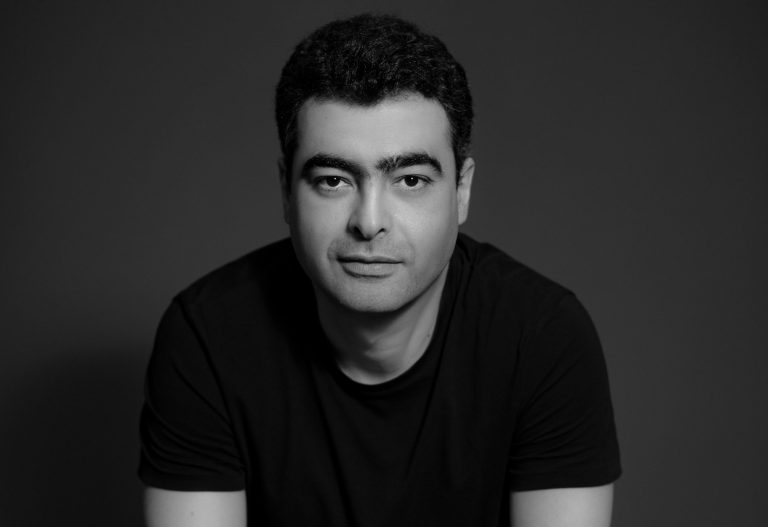In 2025, Egyptian composer Hesham Nazih found himself back in the Marvel universe — this time scoring Eyes of Wakanda, an animated series set in the Black Panther world. It’s big, bold, and bursting with musical textures you don’t usually hear in a superhero soundtrack. But if you’ve followed Nazih’s career, it makes perfect sense. He’s spent years weaving together grand orchestral sweeps, local instruments, and unexpected influences into scores that stick with you long after the credits roll.
So, let’s rewind a bit — from Wakanda to Moon Knight, from royal parades to blockbuster Egyptian thrillers — and see how Nazih went from hometown favorite to international name.
Eyes of Wakanda
For Eyes of Wakanda, Nazih traded in his familiar Egyptian musical toolkit for something even bigger. He went full global, pulling in instruments and textures from across Africa and Asia and even Greece. Think deep drums, airy flutes, dramatic strings, and vocals that feel both ancient and futuristic. It’s cinematic, yes, but it’s also earthy — like you can almost feel the landscapes the show jumps through.
What’s cool here is how quickly he adapts. Nazih’s known for fusing Egyptian identity into his work, but here, he’s showing he can step into any cultural space and make it sound.
Moon Knight
If Eyes of Wakanda were a world tour, Moon Knight was home turf on the biggest stage possible. Nazih became the first Egyptian composer to score a Marvel project, and he didn’t waste the opportunity. The music was recorded with a full orchestra and choir in Vienna, but layered with rababa, ney, mizmar, and arghoul — instruments that instantly grounded the series in its Egyptian roots.
He even gave each of the protagonists’ identities its own musical motif, so you can hear the shifts in personality before you see them on screen. That attention to storytelling through music earned him an Emmy nomination — a first for an Egyptian composer.
Pharaohs’ Golden Parade
Imagine composing music for a live parade… that also happens to be moving 22 ancient royal mummies through Cairo. No pressure, right? For the Pharaohs’ Golden Parade, Nazih wrote over an hour of music that mixed booming orchestral swells with ancient Egyptian modes and choral chants.
It wasn’t just a soundtrack — it was a statement. The score matched the gravity of the moment while still being totally accessible to a global audience watching on TV. Hesham Nazih won a special award at the Movie Music UK Awards, and more importantly, it made millions of people feel like they were part of a once-in-a-lifetime event.
Al Saher
This crime drama starring the legendary Mahmoud Abdel Aziz is famous for more than just its plot—Nazih revealed he composed its music using “a can of peanuts and a crappy microphone.” It’s a story that perfectly sums up his resourcefulness and experimental streak, proving that creativity isn’t about the tools, it’s about the vision.
Elsabaa Wasaya
Nazih leaned into Sufi-inspired music here, something he’d dreamed of doing. Built mostly on human voices, the soundtrack is spiritual yet modern, each “Hadra” scene getting its own unique sound. He worked with rare Sufi poems, keeping the mood philosophical rather than preachy, and made sure the music felt spontaneous and alive.
El Feel El Azraq
Nazih calls the story “unconventional,” so the music had to match—high-intensity, layered, and unpredictable without ever overwhelming the scenes. Balancing horror, mystery, and raw emotion, this score is one of his most challenging and acclaimed.
El-Sellem wel Te’ban
The lighthearted yet emotional score was a turning point in Nazih’s career. It stood out so much that Nazih decided to release it as an independent album — a rare move for dramatic music in the Arab world. It’s now one of the few commercially produced Arab soundtrack albums, proving that instrumental scores can have their own fanbase.
Turab El Mass
Mysterious and sharp-edged, the Turab El Mass score balanced noir-style intrigue with Nazih’s signature cinematic touch. The soundtrack moves like a detective following clues, pulling you deeper into the suspense.
Sahar El Layaly
For this early 2000s cult classic, Nazih balanced soft romantic themes with energetic beats, matching the youthful, restless vibe of the ensemble cast. The score became part of the movie’s identity, as instantly recognizable to fans as the film’s dialogue.
Tito
Action-packed but emotional at its core, Tito gave Nazih a chance to flex his versatility. His score jumped between adrenaline-fueled sequences and more vulnerable, introspective moments, echoing the duality of Ahmed El Sakka’s antihero.
From Egyptian hits to cinematic parades and Wakandan landscapes, Hesham Nazih’s work is about one thing: storytelling without borders. He keeps his sound authentic, adaptable, and endlessly immersive—no matter the setting. And with Eyes of Wakanda in the playlist, it’s clear he’s just getting started exploring new musical worlds.
WE ALSO SAID: Don’t Miss…Between Patriotism & Musical Genius: Celebrating Egyptian Composer Baligh Hamdy



